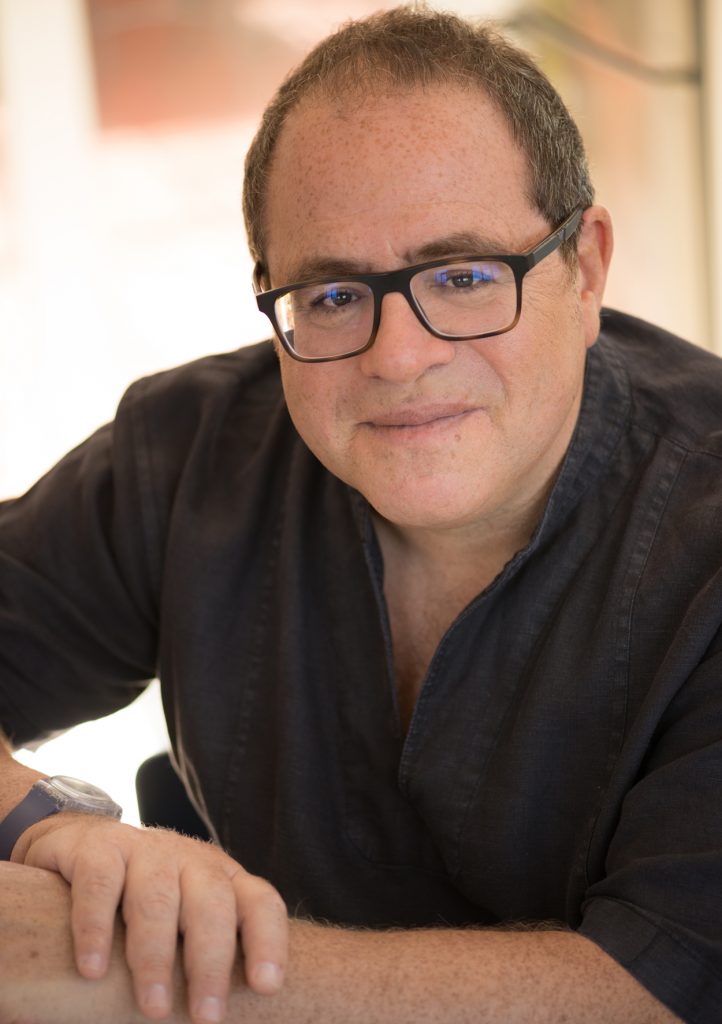Invitation (english)
Einladung (deutsch)
Bericht (deutsch)
Buchrezension (Review — deutsch)
Online talk with author Mark Gevisser
South African author Mark Gevisser was invited to an online talk by the Hirschfeld-Eddy Foundation to present his new book The Pink Line: Journeys Across the World’s Queer Frontiers, which has recently also appeared in German. Klaus Jetz hosted the talk with the journalist from Cape Town.
In the book Gevisser describes the global struggle for LGBTI rights and how he has followed the lives of activists in different parts of the world, some of them for years. He identifies political fault lines running through LGBTI rights issues, terming them “pink lines” and a “new global human rights frontier”. Whereas some parts of the world are making extraordinary progress in LGBTI rights, other parts are seeing a backlash. Traditional values and cultural sovereignty are being set in opposition to universal human rights. In between these two realms run the pink lines, a “human-rights frontier that has weaponised the bodies of queer, gay, lesbian and trans people”.
“I follow their struggle”
Gevisser received a fellowship from the Open Society Foundation to carry out this project, which he pursued in more than 20 countries. He writes about Russian rainbow families who fear losing their children – or who have lost them already – in connection with the country’s so-called anti-propaganda law, about lesbian couples in Mexico struggling over what is written on their children’s birth certificates, and about queer people in Egypt who want to regain public space for themselves in the wake of the Arab Spring. In short, “I’m writing about people who live on a pink line. I follow their struggle, and how their struggle affects their family.”
Two weddings with different consequences
The book’s many reports are framed by the story of Tiwonge Chimbalanga from Malawi. After what was said to be the country’s “first gay marriage” in 2010, which the authorities considered illegal, Chimbalanga and Steven Monjeza were arrested, subjected to a humiliating trial and sentenced to 14 years of imprisonment with forced labour. Following international protests they were released after a few months. This case, when compared to his own marriage at the same time, formed the background for Gevisser’s book. His partner works for the United Nations which meant that Gevisser received spousal benefits, including the ability to accompany his partner who had a position in Paris. By contrast, the marriage of Chimbalanga and Monjeza in a different southern African country had catastrophic consequences. The two marriages, as Gevisser describes them, lie on opposite sides of a pink line. Chimbalanga now lives as a trans woman in a township near Cape Town, and she and Gevisser became friends.
Stopping development aid is not a solution
The online event also discussed international responses to the marriage in Malawi. Some countries, including Germany, responded by stopping financial aid to Malawi. As a result, “gay people in Malawi were blamed for bringing economic hardship, so they got victimised further”. Gevisser went on to recommend that “before you interfere in a country, consult the people on the ground”. If not, “you might do more harm than good because you’re confirming the lies of the other side that homosexuality is an imposition of the west.”
Despite the often difficult life histories described in his book, Gevisser remains optimistic. “My cause for optimism comes from several cases, from the way visibility works in creating islands of care and love and tolerance and respect once you come out – even if they’re small in the beginning. Even though there can be great costs, there will be people who have known you before you came out and will continue to love you.”
Gevisser then noted that he is planning to visit Germany in October. His next project is expected to be about Magnus Hirschfeld.
Caroline Ausserer
journalist, diversity trainer and moderator
About the author:
Mark Gevisser, born in Johannesburg in 1964, is considered one of South Africa’s most important writers. His work on political and cultural aspects of the rainbow nation is published by major media in his home country. As an Open Society Foundation fellow he has travelled to more than 20 countries and written about LGBTI people and their struggles around the world. The Pink Line was published last year in the USA.
Links:
- Decriminalization: our guidelines for international support, proposed by the Hirschfeld-Eddy Foundation
- Review of Die pinke Linie (German translation of The Pink Line)
This event by the Hirschfeld-Eddy Foundation is part of the “LGBTI Human Rights’ Defenders” project, Tag MRV-2021




